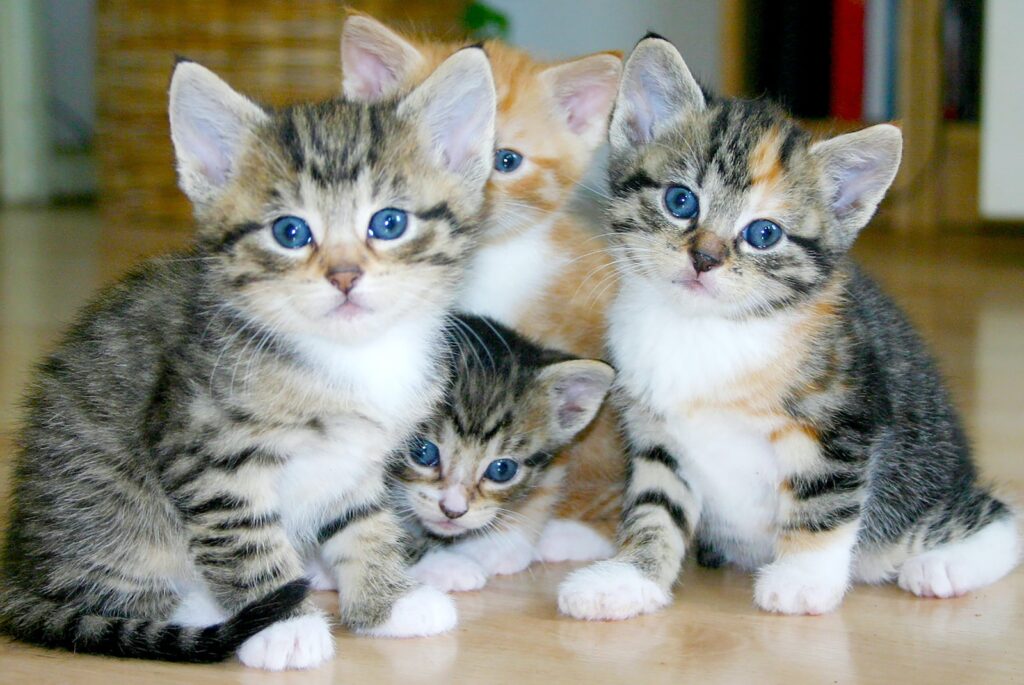Can Cats Eat Pineapple? — Yes, They Can
When it comes to cats and their diet, there are certain food items that can be beneficial for their health, while others should be avoided. So, can cats eat pineapple? The answer is yes, they can. However, it is important to introduce pineapple to your furry friend’s diet with caution and in moderation.
Can Kittens Eat Pineapple?
Yes, kittens can also eat pineapple, but it is crucial to ensure that they are introduced to this fruit gradually and in small quantities. As young and developing cats, their digestive systems may not be fully equipped to handle the acidity of pineapple, so it is important to monitor their response to it.
Things to consider when feeding pineapple to kittens?
Before giving pineapple to kittens, it is important to ensure that they are at least 8 weeks old and are transitioning to solid foods. Start by offering them a small bite-sized piece of pineapple and observe their reaction. If they show any signs of discomfort or digestive issues, it is best to avoid giving them pineapple altogether.
Nutritional Benefits of Pineapple for Cats — Why Pineapple is Good for Cats?
1. Digestive Health
Pineapple contains an enzyme called bromelain, which aids in digestion. This enzyme helps break down proteins, making it easier for cats to digest their food and absorb essential nutrients.
2. Immune Boosting
Pineapple is rich in vitamin C, which plays a crucial role in boosting the immune system of cats. A strong immune system helps ward off infections and keeps your feline friend healthy.
3. Anti-Inflammatory Properties
The bromelain present in pineapple also exhibits anti-inflammatory properties. This can be beneficial for cats suffering from conditions such as arthritis or other inflammatory diseases.
4. Hydration Aid
Pineapple has a high water content, which can contribute to the overall hydration of cats. Proper hydration is essential for maintaining optimal organ function and preventing urinary tract issues.
5. Vitamin and Mineral Rich
Pineapple contains various vitamins and minerals, including vitamin A, vitamin B6, potassium, and manganese. These nutrients are important for supporting overall feline health and well-being.
Potential Allergies: Can Cats Be Allergic to Pineapple?
While pineapple is generally safe for cats, some cats may develop allergies to this fruit. It is important to monitor your cat’s reaction when introducing pineapple to their diet. Symptoms of allergies may include vomiting, diarrhea, or skin rashes.
Symptoms of Pineapple Allergies in Cats
- Vomiting: Cats may vomit shortly after consuming pineapple if they are allergic to it.
- Diarrhea: Digestive upset, such as diarrhea, may occur in allergic cats after eating pineapple.
- Skin Reactions: Cats may develop skin rashes or itching as a result of pineapple allergies.
What to Do If Your Cat Shows Symptoms?
- Consult Your Veterinarian: If you suspect that your cat is experiencing an allergic reaction to pineapple, it is important to seek veterinary advice. They can provide guidance on managing the symptoms and determining if pineapple should be excluded from their diet.
- Remove Pineapple from the Diet: If your cat shows any signs of allergies after consuming pineapple, it is best to eliminate it from their diet to prevent further discomfort or complications.
- Alternative Treat Options: If you still want to provide your cat with a fruity treat, consider other safe options such as small portions of watermelon or cantaloupe.
Recommended Amount: How Much Pineapple Can a Cat Consume?
When feeding pineapple to your cat, it is important to do so in moderation. Too much pineapple can lead to digestive upset, given its acidic nature. A small bite-sized piece once a week or less frequently is a reasonable amount to introduce to your cat’s diet.
Things to Consider When Feeding Pineapple to Cats
Before feeding pineapple to your cat, remove the skin, core, and any tough parts. Cats should only consume the ripe, juicy flesh of the fruit. Always monitor their response and consult your veterinarian if you have any concerns or questions.
How to Feed Pineapple to Cats: A Quick Guide
Introducing a new treat to your cat’s diet can be an enjoyable experience for both you and your feline friend. When it comes to pineapple, follow these simple steps:
Pineapple Treat
1. Choose a ripe pineapple and ensure it is fresh.
2. Remove the skin, core, and any tough or inedible parts.
3. Cut a small, bite-sized piece of the juicy flesh for your cat.
4. Present the pineapple treat to your cat and observe their reaction.
5. If your cat enjoys it and shows no signs of discomfort, you can offer occasional small pieces as treats.
Conclusion
Pineapple can be a safe and nutritious treat for cats when introduced in moderation. Its digestive and immune-boosting benefits, along with hydration aid and vitamin-rich properties, make it an appealing option. However, it is important to monitor your cat for any allergic reactions and consult your veterinarian if you have any concerns. Remember to always remove the skin, core, and tough parts before offering pineapple to your furry friend. Treats should be given in small quantities and should not replace a balanced, species-appropriate cat diet.






